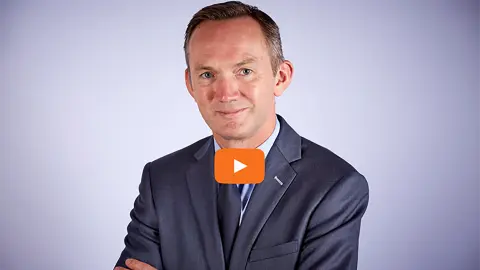Fed Chair Powell’s dose of reality
Fed Chair Jerome Powell doesn't pull his punches in his latest economic update. Monetary policy and negative interest rates can't magic up spending; government needs to do more
More needs to be done...
Fed Chair Jerome Powell’ webcast titled “Current Economic Issue”, underscores the Fed’s concern about the current situation and its medium to longer term implications for the US economy.
He acknowledges that “the scope and speed of the downturn are without modern precedent” and that a clear risk is that "the passage of time can turn liquidity problems into solvency problems”.
As such he believes more action is likely required to support the US economy through the crisis. Unfortunately, as he himself acknowledges in the webcast “the Fed has lending powers, not spending powers” – its policy focus is more on ensuring lending and credit markets are functioning fully and that there is enough liquidity that financial system strains don’t start to feed back negatively on the economy.
It's up to government
Powell therefore, somewhat cautiously, makes the case for more government support, arguing that “additional fiscal support could be costly, but worth it if it helps avoid long-term economic damages and leaves us with a stronger recovery”. Powell himself highlights the fact that the crisis is driving inequality by citing that the Fed’s own analysis shows nearly 40% of households making less than $40,000 per year had lost a job in March. We (ING) are projecting another 12 million decline in payrolls in May so we wouldn’t be surprised to see this figure move close to 60% by the end of this month. Given this backdrop we strongly suspect there will be another round of major fiscal stimulus that receives broad support in Congress.
No to negative rates
With regard to future Fed policy there is no discussion about the possibility of negative interest rates in the text, with the Q&A revealing that it isn’t something they are currently looking at. In any case, plenty of his Fed colleagues had dismissed the idea over the past 48 hours to suggest there is little prospect of it happening despite President Trump’s keen interest. The evidence of success in Europe is very limited while domestic considerations, such as “breaking the buck” in money market funds, make it more challenging.
Instead, his discussion is more focused on emphasising the importance of the unprecedented action of zero interest rates, “unlimited” QE, liquidity and funding measures. These support mechanisms, coupled with measures to support the flow of credit to households, business and state and local governments together with measures to allow banks to increase the size of their balance sheets, would remain in place until “the economic recovery is well underway”. Nonetheless, they will not be permanent and “when the crisis is behind us, we will put these emergency tools away”.
But little prospect of a policy reversal anytime soon
He doesn’t try to gauge when that timing may be. We know that the Global Financial Crisis saw GDP fall 4% peak to trough and it took 14 quarters to recoup that lost output. Today we are forecasting a 13% peak-to-trough fall in GDP through 1H20. While we acknowledge that the scale and speed of the fiscal and monetary support has been more impressive in the current crisis versus the GFC, the fact is we don’t know how long social distancing, travel restrictions and consumer angst about catching the virus will last. There is also clear concern that with tens of millions of Americans having lost their job, consumer demand may not come back as rapidly as in the GFC.
This suggests to us the Fed’s stimulus will remain in play for many more months with very little prospect of a rate hike away from the emergency lower bound within the next year and a half.
This publication has been prepared by ING solely for information purposes irrespective of a particular user's means, financial situation or investment objectives. The information does not constitute investment recommendation, and nor is it investment, legal or tax advice or an offer or solicitation to purchase or sell any financial instrument. Read more
Download
Download article
13 May 2020
Covid-19: What you need to know This bundle contains 10 Articles